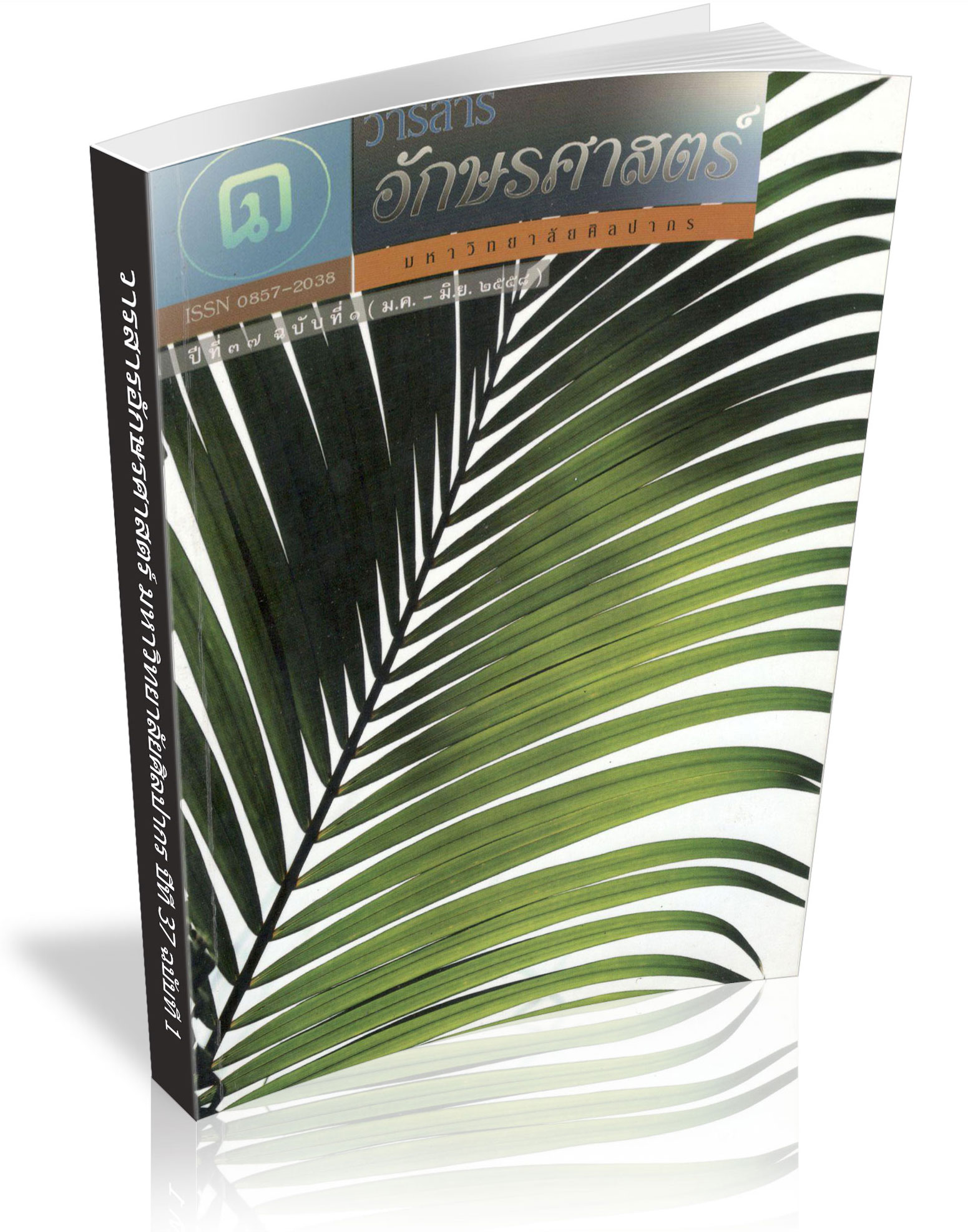The Transmission of the Chinese through Understanding the Meaning and Religious Symbols
Keywords:
Transmission of Chineseness, Descendants, Religious Symbols, Thai SocietyAbstract
The purpose of this article aims to investigate the existence of Chineseness in Thai society, focusing on the transmission patterns and how Chineseness is being transferred to the young Chinese generation born in Thailand, which include the transfer of knowledge and understanding of the meaning of important Chinese festivals and traditions and the analysis of the Thai Chinese in Thai Societal Context. The data used in this study were collected by distributing questionnaires to 282 secondary students in Samut Songkhram and an in-depth interview with 30 Chinese people. The findings are that a majority of the research participants still have their beliefs and faith in gods and sacred or holy items. Most of them still pay respect to their gods on Chinese Sabbath Days as well as to their ancestors (Qing ming). The festivals engaged by every family are the Chinese New Year and Chinese Autumn festival. Others differ from family to family. Most of the participants have knowledge and understanding of the meaning of the Chinese New Year, Chinese Autumn Festival, Vegetarian Festival and God's Thanksgiving Day. The transmission patterns of Chinese festivals and traditions are either direct or indirect. The problems of the transmission occurred because of informal, non-systematic, unclear, and incomplete communicative processes. The factors supporting the success of the transmission of Chineseness are accurate information given by the old to the young generation, a refining process in a family, encouragement on sense of Chineseness to the young generation, the importance of the transmission of Chineseness to preserve Chinese identity.
Downloads
References
ยศ สันตสมบัติ. มนุษย์กับวัฒนธรรม. กรุงเทพฯ : สำนักพิมพ์มหาวิทยาลัยธรรมศาสตร์, ๒๕๓๗.
เรือนแก้ว ภัทรานุประวัติ. รายงานการวิจัยเรื่องการสืบทอดความเป็นจีน ผ่านการทำความเข้าใจในความหมายและสัญลักษณ์ทางศาสนาของชาวจีนสู่ลูกหลานในสังคมไทย. กรุงเทพมหานคร : มหาวิทยาลัยหอการค้าไทย, ๒๕๕๕.
แสวง รัตนมงคลมาศ. บูรณาการชาติ : กรณีชาวจีนในประเทศไทย. ใน กุสุมา สนิทวงศ์ ณ อยุธยา (บรรณาธิการ), รอยร้าวในสังคมไทย? บูรณาการกับปัญหาความมั่นคงของชาติ. กรุงเทพฯ : สถาบันศึกษาความมั่นคงและนานาชาติ, จุฬาลงกรณ์มหาวิทยาลัย, ๒๕๓๑.
อมรา พงศาพิชญ์. วัฒนธรรม ศาสนาและเชื้อพันธุ์ : วิเคราะห์สังคมไทยแนวมานุษยวิทยา. กรุงเทพฯ : โรงพิมพ์จุฬาลงกรณ์มหาวิทยาลัย, ๒๕๓๘.
เอมอร ชลพิไลพงศ์. การสื่อสารของชาวจีนในการถ่ายทอดวัฒนธรรมระหว่างรุ่นต่อรุ่น และศึกษาปัจจัยที่มีผลต่อการสื่อสารเพื่อสืบทอดวัฒนธรรม. วิทยานิพนธ์นิเทศศาสตรมหาบัณฑิต จุฬาลงกรณ์มหาวิทยาลัย, ๒๕๔๕.
Victor Turner. The Forest of Symbol : Aspects of Ndembu Ritual. United States of America : Cornell University, 1967.
Downloads
Published
How to Cite
Issue
Section
License
ผู้เขียนบทความต้องยินยอมในข้อกำหนดต่าง ๆ ของวารสารก่อนส่งบทความตีพิมพ์



